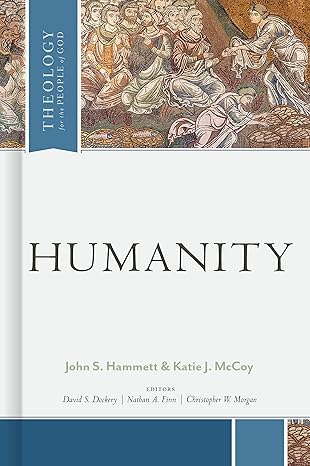A Brief Book Summary from Books At a Glance
by Steve West
Table of Contents
Introduction
- Humanity in Contemporary Culture
- Humans as Created Beings
- Created in the Image of God
- Created Male and Female
- Created to Work
- Created for Community
- Created with a Complex Constitution
- Not as We Were Created: Sin
- Not Now as We Will Be: Sanctification and Glorification
- The Divine Design: The Story from Beginning to End
Appendix: Contemporary Questions of Gender Identity
Summary
Chapter 1: Humanity in Contemporary Culture
Calvin famously asserted that without knowledge of ourselves we cannot know God, and without knowledge of God we cannot know ourselves. Genesis begins by revealing that God creates human beings in his image: they reveal aspects of him, and he is the archetype behind their identity and capacities. Our understanding of human nature is tied to our worldview. Some people see humans as radically free, while others see them as completely determined. Between these two extremes, Scripture depicts human beings as created, responsible persons. Radically free views of human beings can even deny that humans have a nature. Existentialism maintains that since there is no God, we are not created; as a result, we make up our own meaning, deciding what we want to be. Humanism tries to maintain that human beings are the product of unguided natural selection, and yet also have inherent dignity (although there is no foundation for this value). Humanists call people to responsibility and commitment to others, but they have no grounds for doing so. Transhumanism looks to leverage technology to take human beings beyond natural limitations. It is entirely focused on this world and does not take sin into account. We need redemption, and only Christ—not technology—can redeem us.
In contrast to these free views, there are a variety of deterministic views of human nature which all argue that human behavior is determined by nonpersonal forces. There are social, psychological, and scientific forms of determinism. Genetics, chemistry, biology, and the environment are all cited as deterministic. Some determinists allow for a limited role for culture in shaping behavior (e.g., sociobiologists). Theories of determinism erode our trust in epistemology and offer no guidance for how anyone should live morally. Christians in the West have lived with the dominance of free views, but now deterministic views are more common. The Christian view limits both freedom and determinism, while having a place for elements of both. We are made in the image of God and are free enough to be morally responsible. We are created as male or female, and these distinctions are important. A variety of social, environmental, psychological, and scientific factors shape us, but we do have the capacity to make choices that are undetermined by such realities. Our freedom, however, is not absolute. We need to take into account the limiting, weakening, and enslaving condition of sin. Our sinful corruption does not remove our moral responsibility. The solution to humanity’s problem is the redemption that comes through the Lord Jesus Christ. It is through Christ that we are reconciled to God and to other human beings. . . .
[To continue reading this summary, please see below....]The remainder of this article is premium content. Become a member to continue reading.
Already have an account? Sign In
